Cathryn Streifel
Senior Program Director

PRB is a partner on the PROPEL Health project, which is working to support more equitable and sustainable health services, supplies, and delivery systems through policy, financing, governance, and advocacy.
USAID, The Palladium Group
Senior Program Director
Media Technical Advisor
Technical Director, Demographic Research
Program Director
Senior Policy Advisor
PROPEL Health aims to improve the enabling environment for equitable and sustainable health services, supplies, and delivery systems through policy development and implementation; health financing; government stewardship, transparency, and accountability; and the use of evidence-based advocacy approaches at the global, national, and subnational levels. The project focuses on family planning/reproductive health (FP/RH) and the integration of FP/RH with HIV and maternal and child health (MCH).
To enhance resilience and sustainability, PROPEL Health prioritizes local solutions for policy, advocacy, financing, and governance leadership, technical assistance, and capacity development.
The project’s core team includes Palladium, African Economic Research Consortium (AERC), Avenir Health, Population Reference Bureau (PRB), RTI International, Samasha Medical Foundation, and White Ribbon Alliance (WRA). It is led by Palladium and funded by USAID.
We bring expertise in key areas, including:

PRB is a partner on the Palladium-led, USAID-funded Health Policy Plus (HP+) project that strengthens and advances health policy priorities at global, national, and subnational levels.
USAID, Palladium
Former Program Director
Media Technical Advisor
Former Associate Vice President
HP+ focuses on strengthening and advancing health policy priorities in family planning and reproductive health, HIV/AIDS, and maternal and newborn health at global, national, and subnational levels, expanding the efforts of prior U.S. Agency for International Development (USAID) investments from the Health Policy Project (HPP).
HP+ works in more than 17 countries and aims to improve the enabling environment for equitable and sustainable health services, supplies, and delivery systems through policy development and implementation, with an emphasis on voluntary health programs, and by strengthening in-country partners’ capacity to navigate complex environments for effective policy design, implementation, and financing. Taken together, evidence-based inclusive policies, more sustainable health financing, improved governance, and stronger global leadership and advocacy will lead to improved health outcomes worldwide.
HP+ is funded by USAID and the U.S. President’s Emergency Plan for AIDS Relief (PEPFAR). It is implemented by a multidimensional, complementary team led by Palladium.
PRB brings our core strengths in communicating technical health information to the project. Specifically, we work to:
After training from HP+, youth reporters and radio listening club members produced weekly radio programs about youth reproductive health topics in several districts across Malawi. In one example, in 2020 a program on Nkhotakota Radio urged pregnant teenagers to get an HIV test to reduce the risk of transmitting the virus to their babies. Within two weeks of the program airing, an additional 40 pregnant teenagers had visited the District Health Office for HIV tests. Since receiving their training, some youth participants have led youth organizations that lobby local and regional leaders on issues important to youth, including health and education.
In 2018, HP+ conducted policy and advocacy training in Malawi to amplify the voices of young adults working on issues related to youth-friendly health services. A short video presents the voices of three youth champions (also featured in the HP+ 2019 World Population Day blog) who attended the training and are continuing to work in various ways to inspire and educate youth in their communities.
Although Mali has ratified most major international and regional human rights treaties, and its constitution defends women’s rights, the country has yet to formally pass a law criminalizing gender-based violence (GBV). HP+ worked with Mali’s Ministry for the Promotion of Women, Children, and Families and its National Control Program Against Excision to develop advocacy tools, including infographics, for key decisionmakers and the media to spur political will to pass the GBV law. The advocacy materials (in French) include key data and information on GBV, child marriage, and female genital cutting in Mali. They also provide actions that policymakers and the media can take to advocate for a stronger legal and regulatory environment to support voluntary, equitable, rights-based programs.
In Malawi, strategic and multisectoral investments in youth are critical pieces of national growth and development. Growing Together: Multisectoral Investments in Malawi’s Youth is an ENGAGE™ multimedia presentation that describes the necessary investments in young people’s health, education, employment opportunities, and participation in governance that can create a window of opportunity for accelerated economic development. The presentation’s goal is to build awareness of the overlapping needs and priorities of multiple sectors and increase support for cross-sectoral investments in Malawi’s young people. To achieve this goal, the presentation is designed to boost individuals’ understanding of the links between and among young peoples’ health, education, employment, and meaningful participation in governance, and how investments in each of these sectors can contribute to Malawi’s growth and development. The ENGAGE is available in English and Chichewa.

The SAFE ENGAGE project supports safe abortion access by providing decisionmakers with the latest data on abortion, strengthening the capacity of advocates to achieve policy goals, and working with journalists to improve evidence-based reporting.
Senior Program Director
Media Technical Advisor
Africa Director, Regional Representative for West and Central Africa
Thousands of women in sub-Saharan Africa die each year from pregnancy-related causes. Unsafe abortions account for one in seven maternal deaths in Africa, and more than 1.5 million women are treated each year for complications from unsafe abortion. Young African women are especially affected: More than half of unsafe abortions in the region are among women under age 25. Reducing deaths from unsafe abortion requires a policy environment that supports women to equitably access comprehensive prevention and treatment services—contraception, safe abortion, and postabortion care.
The four-year SAFE ENGAGE project is implemented in countries across sub-Saharan Africa, including Burkina Faso, Côte d’Ivoire, the Democratic Republic of Congo, Lagos state in Nigeria, and Zimbabwe. SAFE ENGAGE also contains a rapid response mechanism through which other national and regional partners can request creative, data-driven communications materials to support specific advocacy objectives.
SAFE ENGAGE
SAFE ENGAGE established four country-level task forces that brought together demographers, economists, medical professionals, women’s health and rights proponents, policymakers from government ministries, and parliamentarians for discussions about abortion. These task forces created spaces for collaboration and information sharing that broadened dialogue to include new perspectives, created consensus around objectives and messages, and renewed a focus on evidence. Each task force produced and disseminated ENGAGE multimedia presentation packages. This process strengthened the capacity of task force members to use data and messaging effectively in their own presentations and materials, strengthened collaboration and consensus among safe abortion champions, and generated important policy conversations that are continuing today.
SAFE ENGAGE also supported an intensive media training effort to equip a cadre of journalists in each country to accurately report on the policies and laws surrounding abortion and the determinants, incidence, and consequences of unsafe abortion. Each country setting required its own context-specific focus, and this tailored approach has reaped the reward of high-quality reporting across diverse news outlets.
During the second phase of the project, SAFE ENGAGE built on the work of the task forces by conducting policy communication training and regional learning exchanges to strengthen Task Force members’ ability to communicate with policy audiences and foster collaboration across neighboring countries. The regional learning exchanges also allowed participants to learn from each other’s successes and brainstorm approaches to overcoming shared challenges. SAFE ENGAGE also produced a guide to policy dialogue for safe abortion, which synthesized learning from the first phase of the project.
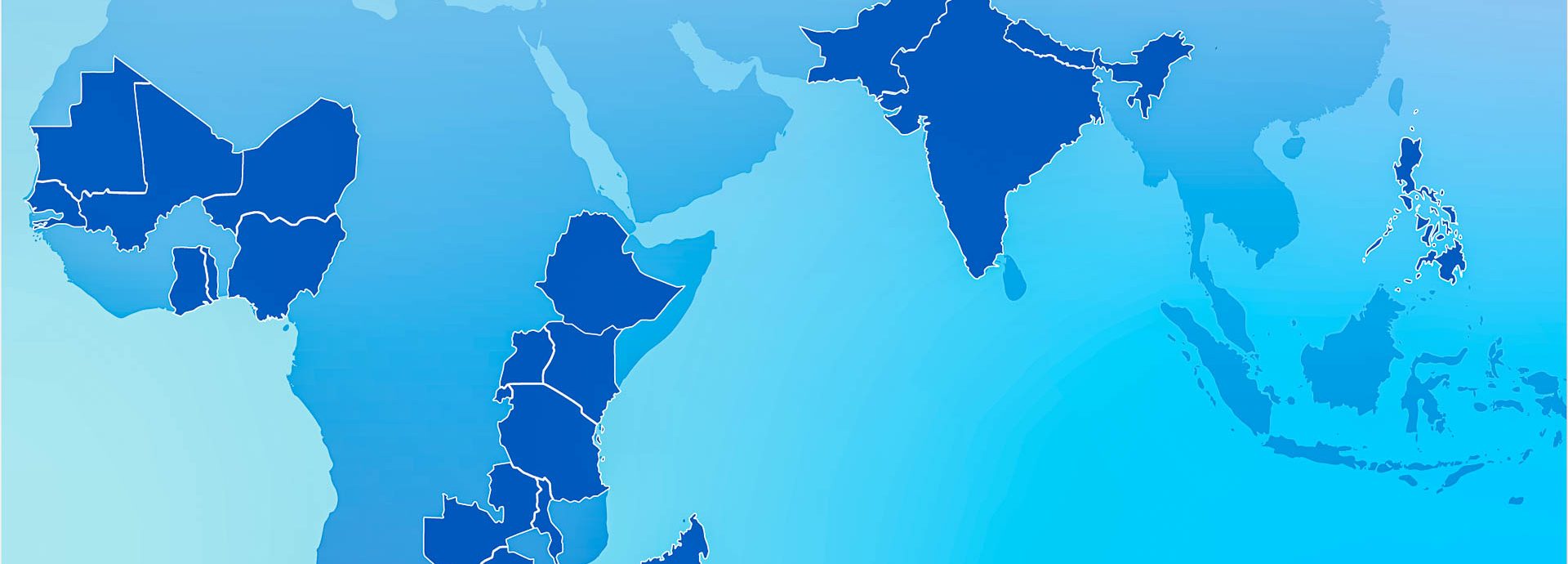
PACE and our local partners build champions, bridge sectors, and distill evidence to ensure that family planning, reproductive health, and population issues are recognized as key to sustainable and equitable economic growth and development.
USAID
Former Associate Vice President
Program Director
Africa Director, Regional Representative for West and Central Africa
Former Country Director, Kenya
Program Finance & Operations Manager
Adaptive Learning and Knowledge Management | Data Visualization and Dissemination | Demographic Estimation and Forecasting
| Distilling Research for Non-Technical Audiences | Research and Data Analysis | Policy and Advocacy Communications Training | Technical Assistance and Training | Training and Support for Journalists
Over the last two decades, many countries have realized remarkable increases in the use of modern contraception. More women and couples are using effective methods to choose when and how many children to have—benefiting their health, their children’s health, and their families’ economic prospects. However, this progress varies regionally and within countries, and demand for voluntary family planning is not fully satisfied in many USAID priority countries. To meet this need, development partners and national advocates are mobilizing to ensure that governments honor the policy, financial, and other commitments made through the Sustainable Development Goals (SDGs), Family Planning 2020 partnership, and other initiatives.
Funded by the United States Agency for International Development (USAID), the PACE Project—Policy, Advocacy, and Communication Enhanced for Reproductive Health—ensures these commitments are met at the global, national, and decentralized levels by strengthening capacities in advocacy, policy communication, and negotiation; building bridges between sectors with integrated approaches such as population, health, and environment and efforts to amplify understanding of the benefits of age-structure change across development sectors; and analyzing, distilling, and disseminating evidence and data to engage policy and advocacy audiences to act. PACE integrates the cross-cutting themes of gender, youth, and equity throughout all activities.
PACE activities ensure that family planning, reproductive health, and population issues are at the heart of policies and programs and are recognized as key to sustainable and equitable economic growth and development. Through PACE, PRB can help countries achieve Family Planning 2020 commitments, end preventable child and maternal deaths, and reach the SDGs.
Since the project’s launch in 2015, PACE has advanced political and financial commitments for family planning and reproductive health across 20 countries. In 2020, the project was extended so we can continue to:
PACE’s intensive capacity strengthening positions partners and individuals, including new cadres of champions, to implement and advocate for multisectoral development solutions that make tangible contributions to countries’ Journey to Self-Reliance (J2SR). Our approach adapts to our partners and is premised on sustainable engagement driven by their needs. We are an active part of the communities we serve, listening and working together.
Across several multisectoral approaches to development—including population, environment, and development (PED); gender; and the demographic dividend—PACE plays a critical role by providing technical expertise; identifying, training, and convening champions; and developing and disseminating cutting-edge knowledge.
PACE generates innovative approaches to analyze, synthesize, and communicate data and information to decisionmakers. PACE co-creates tools and products and applies fresh dissemination approaches in collaboration with local partners, and leads efforts to increase the use and application of data for policymaking.
PRB’s East Africa office, based in Nairobi, oversees PACE’s largest country program in Kenya, a multipronged effort supporting partners across sectors and geographies to create an enabling environment for prioritizing family planning and reproductive health and contribute to implementation of the J2SR.
For family planning advocates, no greater success exists than a dedicated and adequately funded line item in the health budget. PACE’s strategic approach to budget advocacy has paid off in Samburu County, Kenya, where concerted advocacy activities led to a first-ever budget line item for family planning, as well as an increased percentage of the county’s budget allocated to health in FY 2020/21. Over a period of months, PACE facilitated workshops to support the county health management team (CHMT), sector working groups, and departmental representatives to identify priorities for county budgeting. This continuous engagement with the CHMT has enabled them to effectively advocate to the Finance Department and County Assembly for increased funding for health and a new budget line valued at approximately $112,000 for family planning.
Nigerian youth advocates trained by PACE secured policy commitments from local leaders by creating videos focused on ending child marriage and increasing access to family planning services. BCAI, a youth-led organization launched with support from PACE, aided local youth advocates to widely disseminate the videos across popular social media platforms and in community-level policy dialogues with seven influential leaders from both the traditional and political governing structures in northern Nigeria. Following their outreach, the governor of Kano State made a public declaration to end child marriage by committing his support to the Child Protection Bill. While the legislation is still pending, sections of the bill that provide for compulsory schooling for all children as a method to reduce child marriage have been adopted into a state-level policy.
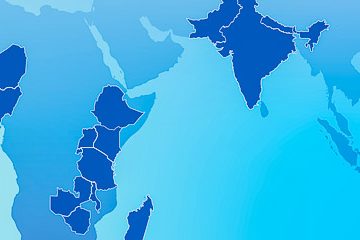
Under PACE, PRB works closely with global actors, national and local governments, USAID missions, and civil society to build champions, bridge sectors, and distill evidence through data-driven, innovative products. PACE strengthens capacities in advocacy, policy communication, and negotiation, and increases commitments to multisectoral approaches such as Population, Health, and Environment and the demographic dividend.

PACE produces original analysis and targeted communication materials to examine variations in adolescent fertility throughout Nepal. Together with local partners, PACE works to ensure that Nepal’s policies and programs use this new information on adolescent fertility to strengthen family planning programs and keep girls in school as the country promotes sustainable, equitable economic growth and development.
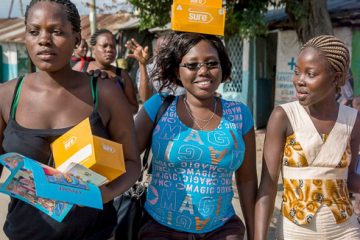
In Kenya, PACE works with national and subnational partners to ensure that sustained access to quality family planning and reproductive, maternal, newborn, child, and adolescent health is enshrined in Kenya’s policies and programs to achieve the Sustainable Development Goals and Kenya’s Vision 2030. PACE is recognized as a key partner supporting Kenya’s Journey to Self-Reliance.

The Sahel Faith ENGAGE initiative supports policy dialogue about faith and family planning in three countries—Guinea, Mali, and Mauritania—working with a task force of religious leaders, youth, and government representatives contributing to an enabling environment for policies and programs supportive of reproductive health in the Sahel.
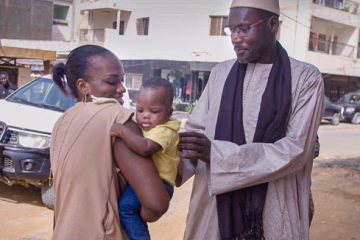
In Senegal, PACE supports religious leaders who are working to increase knowledge among their communities about the benefits of family planning, and continues to build the capacity of the media on the multiple benefits of family planning and maternal and child health services.
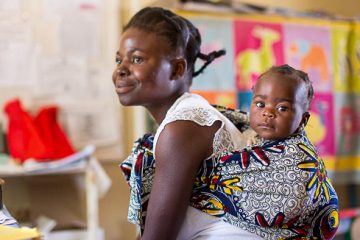
In Zambia, PACE implements innovative, strategic approaches to ensure that HIV/AIDS, population, and family planning are included in Zambia’s policies and programs as key to sustainable and equitable economic growth and development.
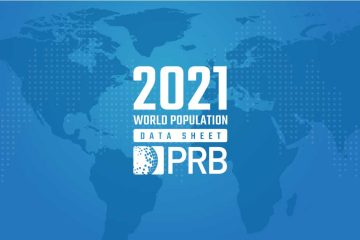
The 2021 World Population Data Sheet offers the latest population, health, and environment indicators for more than 200 countries and territories, each carefully researched by PRB’s expert team of demographers and analysts.
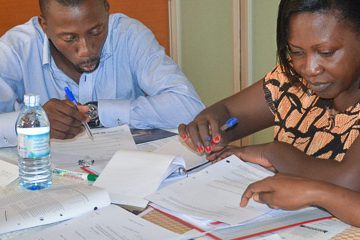
This toolkit bridges the gap that often lies between research and policy. It consolidates tools, materials, and approaches PRB has developed and refined over 30 years of training researchers to communicate with policy audiences.

Women’s decisions about family planning are complex and change over time. Understanding these shifts can help us meet women’s needs and support their goals.

In Ghana and Uganda, young people dominate the population age structure below age 15. Both countries can shift this high child dependency by empowering women to achieve their reproductive goals.

Supporting targeted local planning in the context of Nepal’s recently devolved governance, the PACE Project has released modeled estimates of adolescent fertility for the 753 municipalities in Nepal.

Yet even as governments refine their development plans and priorities, they are contending with the massive disruption caused by the coronavirus pandemic.

Women's Edition brings together senior-level women editors, reporters, and producers from influential media organizations in developing countries to examine and report on pressing issues affecting women's health and status.
Through global, regional, and country-level programs, we work with journalists in developing countries to build their competence, understanding, and commitment to providing effective and high-profile coverage of health, gender, and population issues. Our work with journalists includes sponsoring seminars on these issues, providing support for reporters to attend and cover relevant regional and international conferences, providing travel reporting grants, and individual mentoring.
Our work enables journalists to produce print and online articles and broadcast programs that inform citizens and policymakers with up-to-date media coverage of important issues affecting citizens’ health and well-being and countries’ social and economic development. Through seminars and workshops, we strengthen journalists’ abilities to work with data and produce stories that can help to shape public discourse and bring about needed changes in health systems, programs, and policies.
Women’s Edition brings together senior-level women editors, reporters, and producers from influential media organizations in developing countries to examine and report on pressing issues affecting women’s health and status. By providing information directly to millions of women in developing countries on issues important to them, Women’s Edition arms women with information that allows them to take control of their lives and informs policymakers on needed programs and policy reforms.

By increasing the flow of accurate, understandable information about population, family planning, and reproductive health to policy audiences, IDEA enhances efforts carried out by civil society, the public sector, the development community, and donors.
USAID
Ensuring that family planning, reproductive health, and population issues are key for sustainable and equitable...
USAID
With funding from the U.S. Agency for International Development, IDEA—Informing Decisionmakers to Act—increases support among policy audiences for effective health and population programs around the world.
In implementing IDEA, PRB brings a fresh vision to policy communication. By increasing the flow of accurate, understandable information about population, family planning, and reproductive health to policy audiences, IDEA enhances efforts carried out by civil society, the public sector, the development community, and donors. IDEA develops materials on priority issues in cutting-edge formats; trains and supports media to influence policy change; builds the communications capacity of institutions, researchers, and advocates; and nurtures a community of policy champions.
To strengthen advocacy and communication targeted to decisionmakers, IDEA highlights these program activities:
